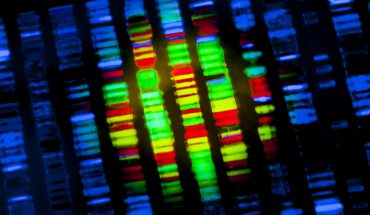People infected with the Omicron variant show poor immune boosting against future SARS-CoV-2 infection. These are the findings of a study published in the journal Science https://www.science.org/doi/10.1126/science.abq1841), led by researchers at Imperial College London, which looks at how the complex patchwork of immunity in the population following vaccination and previous infection influences our future protection against SARS-CoV-2.
A common assumption of the COVID-19 pandemic has been that through being infected with the virus you gain a natural immune boost, leaving you better able to recognise the variant you’ve encountered and fend off infection in the future.
However, the latest analysis finds that Omicron provides a poor natural boost of COVID-19 immunity against re-infection with Omicron itself even in people who are triple-vaccinated.
In those who were triple vaccinated and had no prior SARS-CoV-2 infection, Omicron infection provided an immune boost against previous variants (Alpha, Beta, Gamma, Delta and the original ancestral strain), but less so against Omicron itself. Those infected during the first wave of the pandemic and then again later with Omicron lacked any boosting.
According to the team, their findings may help to explain why ‘breakthrough’ and repeat infections have been a common feature of the Omicron wave of the pandemic. However, they stress that vaccination
continues to provide protection against severe disease and death.
It has been argued that even if antibody recognition of Omicron is poor, T cell immunity may be ready to fill the gap to achieve effective protection. However, the study showed poorer recognition of Omicron
spike antigen by T cells in those who had been Omicron infected.
Professor Rosemary Boyton, from Imperial’s Department of Infectious Disease and lead author, said: “Getting infected with Omicron does not provide a potent boost to immunity against re-infection with Omicron in the future. Previous SARS-CoV-2 infection impacts on the ability to boost immunity against subsequent SARS-CoV-2 infection through a process called ‘immune imprinting’, and this may apply to sub-variants of Omicron including BA.4 and BA.5.”
Professor Danny Altmann, from Imperial’s Department of Immunology and Inflammation, said: “We have found that Omicron is far from a benign natural booster of vaccine immunity, as we might have thought, but it is an especially stealthy immune evader. Not only can it break through vaccine defences, it looks to leave very few of the hallmarks we’d expect on the immune system – it’s more stealthy than previous variants and flies under the radar, so the immune system is unable to remember
it.”
Previous work by the team found that patterns of immunity against SARS-CoV-2 are ‘imprinted’ on the immune system by infection history. Your imprint is determined by the number of vaccine doses you have received and the variant that you come in to contact with, resulting in different immunity across different individuals in the population.
In the latest study, they looked at why there are so many Omicron breakthrough infections, even among people who have been triple vaccinated; how this is affected by previous infection history; and
whether Omicron infection at least offers a ‘natural booster’ of COVID-19 immunity.
The team analysed blood samples from UK healthcare workers who received three doses of mRNA vaccine, and who had different SARS-CoV-2 infection histories, to investigate antibody, T and B cell immunity against Omicron.
They found that people with no prior SARS-CoV-2 infection who then had Omicron showed enhanced cross-reactive immunity to previous variants -with enhanced B and T cell immunity against Alpha, Beta, Gamma and Delta – but they showed a reduced boosting against the Omicron spike protein itself.
Healthcare workers with prior Alpha infection showed a less sustained antibody response against Omicron. People infected during the first wave of the pandemic and then again with Omicron lacked any immune boosting, in an effect the researchers termed ‘hybrid immune damping’.
According to the researchers, the impact of immune imprinting means that after infection with Omicron people who had previously been infected during the first wave are not immune boosted against a subsequent infection with the variant, and potentially its subvariants BA.4 and BA.5. They highlight that while vaccination provides protection against severe disease, the impact of infection and re-infection on long term health, including long COVID, is not known. The current study only focused on triple mRNA vaccinated individuals.
Professor Boyton said: “A concern is that Omicron could potentially mutate further into a more pathogenic strain or become better able to overcome vaccine protection. In this scenario, people who have had Omicron infection would be poorly boosted against future infection depending on their immune imprinting.”
Professor Altmann added: “While our latest findings highlight clear concerns about the nature of Omicron infection, vaccination remains effective against severe disease. Those who are eligible to receive a booster should be encouraged to do so.”
Dr Joseph Gibbons, from Queen Mary University of London and study author, added: “The link between a person’s infection history and their response to the vaccine is now clear. Previous infection with different variants impacts both the potency and durability of your immune responses. The effectiveness of current vaccination strategies will depend not only on which variants become dominant in the future, but also on how previous waves of infection have impacted our immunity.”
“We show that ‘hybrid immune damping’ can occur. For example, infection with the ancestral virus strain impairs the boosting effect of a subsequent Omicron infection. The broad diversity of infection history in our population means that further exposure to the current vaccine has different implications for different people.”
Dr Catherine Reynolds, from Imperial’s Department of Infectious Disease, further commented: “Now, with such diverse patterns of SARS-CoV2 infection and vaccination across different global populations, it is more important than ever to understand the immune impacts of these patterns and how they might shape immunity to future variants. Our study shows that an individual’s vaccination and infection history can have a huge bearing on their immune response to variants, including to Omicron.”
- Combination of drugs could prevent thousands of heart attacks - 21st April 2025
- UQ Study Links Poor Teen Diets to Heavy Social Media Use - 21st April 2025
- Gut microbiome could delay onset of type 1 diabetes - 3rd April 2025






